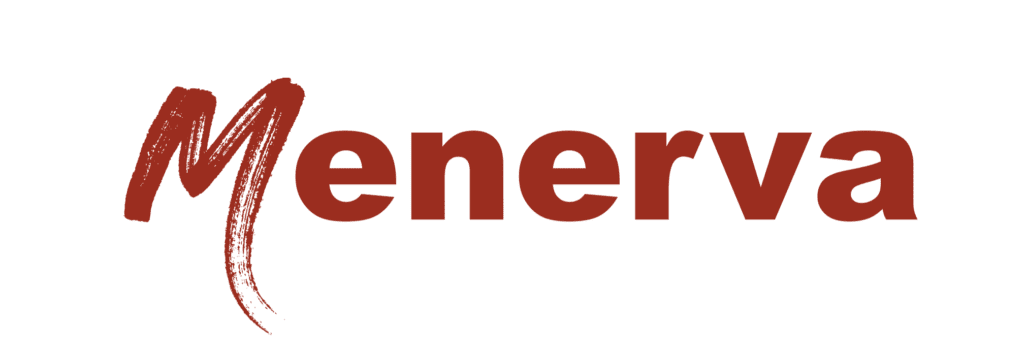So, you’ve heard of SEO (Search Engine Optimization) but are not super familiar with how to get started with keyword research. Or maybe you’re looking to refine your current approach. You’ve landed in the right place. In this comprehensive guide, we’ll demystify the process of keyword research, a fundamental aspect of SEO that can make or break your presence online.
We’ll start with the basics–what keyword research is and why it’s so important for your digital success. Then we’ll delve into the key elements of keyword research, types of search queries, and a step-by-step process on how to conduct it. We’ll also guide you on finding the right keywords for your website and round off with some of the best tools you can leverage in this process. By the end of this guide, you’ll be equipped with the knowledge and strategies to identify the best keywords to fuel your SEO efforts. You’ll effectively increase your online presence and reach your target audience. Let’s dive in!
What Is Keyword Research?
Keyword research is a crucial practice in search engine optimization (SEO) that involves identifying popular words and phrases users type into search engines while seeking information that aligns with the content you aim to provide.
The purpose of conducting keyword research is multifaceted. It’s not just about getting to know the terms your potential audience is tapping into Google, Bing, or other search engines. It’s about delving into the psyche of your target audience to understand their needs, concerns, and preferences, which can help shape your overall content strategy.
In essence, keyword research allows you to:
- Understand your audience: Knowing the exact phrases your audience uses when searching online provides insights into their needs and the language they use to express them.
- Create targeted content: Knowing your audience’s keywords informs the type of content you’ll create to resonate with their needs. This includes blog posts, social media updates, product descriptions, and other types of content.
- Improve search engine rankings: Content containing the right keywords improves your visibility in search engine results pages (SERPs). As a result, your website’s organic traffic will increase, leading to increased opportunities for conversions.
By understanding keyword research, you’re essentially getting a roadmap to the minds of your target audience. With this roadmap, you can chart a course that leads to more effective content, better SEO, and, ultimately, increased visibility and success for your brand.
Why Is Keyword Research Important?
Keyword research is a foundational element in any successful SEO strategy. It provides direction and informs your content, helping you connect with your audience more effectively. Here’s why it holds such weight in SEO:
- Traffic growth: The right keywords can propel your website higher on the SERPs. When your site ranks highly for keywords your target audience is searching for, you’re more likely to draw significant organic traffic. More organic traffic often translates to more opportunities for engagement and conversions.
- Customer acquisition: Keyword research can guide you to potential customers in various stages of the buyer’s journey. You can attract customers at each phase by targeting keywords used in informational, consideration, and decision-making stages, nurturing them from awareness to purchase.
- Brand awareness: Keywords ranking highly on SERPs enhances your brand’s visibility, thus improving brand awareness. Even if a searcher doesn’t click on your site the first time they see it, the repeated exposure can make them more likely to engage with your brand in the future.
- Understanding market demand: Keyword research can also reveal market trends and shifts in consumer behavior. Tracking the popularity of certain keywords over time can help you anticipate customer needs and stay ahead of your competition.
- Creating a Content Strategy: Keywords can help inform your content strategy. Creating content that addresses what your audience is searching for answers their questions, solves their problems, and fulfills their needs.
- Cost-effective marketing: Compared to paid advertising strategies, like pay-per-click (PPC), an effective keyword strategy can draw in high-quality traffic without the same expense. This makes keyword research a cost-effective, high-return component of your marketing efforts.
In summary, keyword research is a powerful tool that enables you to drive targeted traffic, understand your audience’s intent, boost brand visibility, anticipate market demand, shape your content strategy, enhance user experience, and provide cost-effective marketing solutions. Investing time in keyword research ultimately sets the stage for a robust and effective SEO strategy.
Elements of Keyword Research: Understanding the Basics
When it comes to keyword research, it’s not merely about finding the most popular keywords. Understanding different elements and integrating them into your research can optimize your strategy and attract quality traffic. Here are some key elements to consider:
- Relevance: Relevance is perhaps the most important factor in keyword research. Ensure your keywords are highly relevant to your content, services, or products. This ensures that you attract visitors who are genuinely interested in what you offer, which could lead to better engagement, higher conversion rates, and improved SEO.
- Volume: This refers to the number of searches a specific keyword receives within a set timeframe. High search volume keywords might seem attractive due to their potential for traffic, but they also tend to be highly competitive. Balancing high and low-volume keywords is often a key strategy. For instance, while a keyword like “shoes” might have a high search volume, a long-tail keyword like “red leather hiking boots” might have a lower volume but target a more specific and potentially less competitive audience.
- Keyword difficulty or authority: Keyword difficulty indicates how challenging it might be to rank for a particular keyword. This is often determined by the authority and quality of the websites currently appearing on the search engine results first page for that keyword. Depending on your site’s current authority, you may want to target less competitive keywords until you build up your own authority. For example, a new website selling handcrafted jewelry might struggle to rank immediately for a broad term like “jewelry,” but targeting a more niche keyword like “handmade turquoise necklaces” might yield better results due to lower keyword difficulty.
- Long-tail keywords: Visitors close to the point of purchase or when using voice search are likely to use longer, more precise keyword phrases. They might have lower search volumes but, due to their specificity, have less competition and higher conversion rates. For instance, while someone might initially search for “laptops,” a user ready to buy could type or voice search “Dell XPS 15 with 16GB RAM and 512GB SSD,” indicating a clearer intent and preference, making it a valuable long-tail keyword for businesses to target.
- User intent: Search or user intent refers to why they’re conducting a specific search. Are they looking to buy something (transactional intent), find a specific website (navigational intent), or seek information (informational intent)? User intent is critical to informing content creation that meets your audience’s needs. For example, a search query like “history of the Eiffel Tower” suggests informational intent, whereas “Eiffel Tower tickets price” indicates transactional intent, guiding businesses or website owners on the type of content or service they should provide for each query.
- Keyword trends: The popularity of keywords can fluctuate based on various factors like seasonality, industry trends, or current events. Using tools that provide keyword trend data help you capitalize on these shifts and keep your content relevant. For instance, a keyword like “summer beachwear” might peak in searches during the summer months, while “winter coats” would see a surge during the colder seasons, illustrating the importance of timing and trend awareness in content strategy.
- Local vs. global searches: If you run a local business, the geographical location of your audience can be a significant factor in your keyword research. Localized keywords help you rank in local search results, drawing in targeted traffic from a specific area. For example, a bakery in Seattle might optimize for “best Seattle bakery” or “croissants in Seattle” rather than broad terms like “fresh bakery items,” ensuring they attract customers specifically searching for bakeries in their vicinity.
By considering these elements when conducting keyword research, you can create a comprehensive strategy that not only attracts more traffic but targets the right kind of traffic. This traffic is more likely to engage with your content, become leads, and ultimately convert into customers.
Types of Search Queries
Search queries can be broken down into different types. Understanding each query type will significantly enhance your keyword research and SEO strategy. Different query types often signify different user intent, which can guide the kind of content you create and how you optimize it. Let’s dive into the four main types of search queries:
- Informational: These are search queries where users are looking for information. They could be searching for answers to a question, learning about a new topic, or exploring detailed guides. Informational queries usually start with “how,” “what,” “why,” “where,” or “when.” For instance, “how to do keyword research” or “how to write content” are informational queries. To target informational queries, create content that educates your audience, such as blog posts, how-to guides, tutorials, and FAQs.
- Navigational: These are searches conducted to locate a specific website or page. For example, if a user types “Facebook” or “OpenAI blog” into a search engine, they’re performing a navigational query. To optimize for navigational queries, ensure your website is easily navigable, with clear and logical URLs and an intuitive site structure.
- Commercial: Commercial queries indicate that a user is in the process of making a purchase decision but may need more information before they commit. They often look for reviews, comparisons, or more details about a product or service. Examples of commercial queries include “best DSLR cameras” or “iPhone vs. Samsung comparison.” The best content for these queries includes comparison posts, product reviews, and feature breakdowns.
- Transactional: These searches suggest that a user is ready to buy. They’ve made up their mind and are now looking to purchase or perform a specific action online. Examples include “buy iPhone 12 online” or “download Adobe Photoshop.” To cater to transactional queries, ensure your product pages are optimized, your checkout process is seamless, and your call-to-actions (CTAs) are clear and compelling.
Identifying the type of search query you’re targeting helps to align your content with the user’s intent, increasing the likelihood of attracting relevant traffic and achieving higher conversion rates. Remember, matching your content to your user’s intent is critical to successful SEO.
How to Research Keywords for Your Strategy
Performing keyword research might seem daunting at first, especially if you’re new to SEO. The best place to start is by breaking down your research into smaller steps to develop an effective keyword strategy. Here’s a step-by-step guide to help you get started:
- Start with Seed Keywords: Seed keywords are the foundation of your keyword research. They define your niche and help identify your competitors. These are broad terms that describe your products or services, industry, or content topics. For example, if you run an online vegan bakery, your seed keywords could be “vegan bakery,” “vegan cakes,” “plant-based cookies,” etc., or if you sell jeans, your seed keywords could be “jeans,” “skinny jeans,” “mom jeans.”
- Fill in those buckets with keywords: Once you have your seed keywords, use them to generate a list of potential keywords. These are terms and phrases that are relevant to your seed keywords. You can find them by brainstorming, looking at competitors’ sites, using autocomplete features in search engines, or using keyword research tools. For instance, using the previous example, expanding on the “vegan cakes” keyword, you could add to your bucket by adding “vegan chocolate cake,” “vegan lemon cake,” “vegan birthday cake,” and so on.
- Think about questions: People often use search engines to find answers to questions. Consider your target audience’s questions related to your seed keywords. For example, “What are the best vegan desserts?” or “How to bake vegan cookies?” These question-based keywords can be a great way to generate informational content.
- Consider related terms: Search engines are smart and understand synonyms and related terms. So, weave related keywords into your content to raise visibility and relevance. Use tools like Google’s “Searches related to…” section at the bottom of search results to find related terms.
- Use keyword research tools: Tools like Google Keyword Planner, SEMrush, Ahrefs, and Moz’s Keyword Explorer can provide valuable data about your potential keywords, including search volume, keyword difficulty, and more. They can also suggest new keywords you might not have thought of.
- Analyze the competition: Look at the keywords your competitors are ranking for. You might find some you’ve overlooked, or it could provide insight into other potential market segments. Tools like Ahrefs and SEMrush can help with competitor keyword research.
- Prioritize your keywords: Take your list of potential keywords and rank them based on their relevance, search volume, keyword difficulty, and alignment with your business goals. This will give you a targeted keyword list for your SEO strategy.
- Refine and repeat: Keyword research isn’t a one-time process. As market trends shift, new competitors emerge, and search algorithms evolve, you’ll need to regularly revisit and refine your keyword strategy.
Remember, while keyword research is a critical aspect of SEO, creating high-quality, valuable content around these keywords is equally important. Content that provides the best user experience is prioritized by search engines, so focus on meeting your audience’s needs with your content, and incorporate your keywords in a natural, meaningful way.
How to Find & Choose the Right Keywords
Finding the right keywords for your website is critical to your SEO strategy. The right keywords can increase your search engine result visibility and attract more relevant traffic to your site. Here’s a step-by-step guide to help you find the right keywords for your website:
- Understand your audience: Before you begin keyword research, it’s crucial to understand who your audience is and what they’re interested in. What are their needs and concerns? What kind of language do they use? What topics are they interested in? By understanding your audience, you can select keywords that are relevant and meaningful to them.
- Use seed keywords: Seed keywords are the foundation of your keyword research. They are core terms that describe your products, services, or the topics of your content. Identify broad keywords central to your business as your seed keywords.
- Explore long-tail keywords: Long-tail keywords are more specific, longer phrases people use in searches. They typically have lower search volumes but lower competition and can attract highly relevant traffic. Use your seed keywords to brainstorm long-tail keywords relevant to your business.
- Leverage keyword research tools: Keyword research tools can provide valuable data about your potential keywords, including search volume, competition level, and more. They can also suggest new keywords you might not have thought of. Consider tools like Google Keyword Planner, Ahrefs, SEMrush, and Moz Keyword Explorer.
- Analyze your competitors: What keywords are your competitors targeting? This stimulates new keyword ideas and helps you understand what keywords are working for businesses similar to yours. To help analyze competitor keywords, use tools like SEMrush or Ahrefs.
- Consider user intent: Remember that not all searches are created equal. A user searching for “best DSLR cameras” likely has different intentions than someone searching for “buy Canon EOS 5D.” Consider the intent behind different keywords when deciding which ones to target.
- Prioritize your keywords: Once you’ve generated a list of promising keywords, rank them based on search volume, business relevance, level of competition, and alignment with your audience’s needs.
- Test and refine your keyword strategy: SEO is a long-term process often involving much trial and error. Monitor your keyword performance, test different strategies, and refine your keyword list based on your results.
Remember, the ultimate goal of keyword research isn’t just to increase traffic—it’s to attract the right kind of traffic. By finding the right keywords for your website, you can attract users who are relevant to your business, more likely to engage with your content, and ultimately, more likely to convert into customers.
Keyword Research Tools
Keyword research tools are essential for SEO professionals, content creators, and digital marketers. They provide valuable insights about potential keywords, including search volume, competition level, related keywords, and much more. These tools can reveal new keyword opportunities, understand the keywords your competitors are targeting, and refine your SEO strategy. Several leading keyword research tools include:
-
- Google Keyword Planner: Google’s free tool is primarily designed for use with Google Ads. It can also provide valuable insights for SEO keyword research by displaying search volume and competition for your selected keywords and suggesting related keywords. The tool can also help you discover new keywords. For instance, if you input “organic coffee beans” into Google Keyword Planner, it might also suggest related terms such as “fair trade coffee brands” or “best organic coffee roasts.”

-
- SEMrush: SEMrush is a comprehensive SEO tool offering keyword research and other features. It provides information about keyword difficulty, search volume, and even includes a list of the websites ranking for each keyword. It also provides a “Keyword Magic Tool,” which generates a comprehensive list of keywords related to your seed keywords. Additionally, SEMrush excels in competitor analysis. By entering a competitor’s domain, you can uncover the keywords they’re ranking for, their backlink sources, and even their ad strategies, giving you insights and opportunities to refine your own SEO approach and potentially outperform them in search rankings.

-
- Ahrefs Keywords Explorer: Ahrefs is a popular SEO tool that offers robust keyword research that displays search volume and keyword difficulty. It also shows how many clicks you can expect from a particular keyword. Ahrefs also highlights “parent topic” for your keyword, which helps in crafting comprehensive content.

-
- Moz Keyword Explorer: Moz’s tool offers keyword suggestions, SERP analysis, and measures rank difficulty for a specific keyword. Moz also provides a “Priority” score that combines all these factors to help you prioritize your keywords.
- KWFinder: KWFinder is a tool specialized in deep keyword research. It shows a difficulty score for each keyword and includes a SERP checker to see which sites rank for a given keyword. It’s particularly useful for finding long-tail keywords with lower competition.
- AnswerThePublic: This tool is excellent for finding questions and long-tail keywords related to your seed keywords. It visualizes these queries in a “search cloud” and helps you understand what information your audience is searching for. For instance, if you input “solar panels” into AnswerThePublic, you might discover questions like “How do solar panels work?” or “Are solar panels worth the investment?”. By addressing these specific queries in your content, you can cater directly to the informational needs of your audience, establishing authority and trustworthiness in the niche.

- Ubersuggest: Created by Neil Patel, Ubersuggest offers keyword data like search volume, competition, and even suggests the estimated number of website visits ranking for specific keywords. It also proposes a list of related keywords.
While the tools mentioned here represent a solid starting point, it’s important to note that there’s a vast array of both free and paid keyword research tools available in the market. Each has its own unique features and advantages. These tools can be immensely beneficial in providing data-driven insights to guide your keyword research process. By understanding keyword metrics and using these tools to uncover new opportunities, you can craft a more effective SEO strategy that helps you connect with your target audience.
In this comprehensive guide, we’ve walked through what keyword research is, why it’s crucial to your online success, and the fundamental elements involved in this process. We’ve also outlined the different types of search queries to understand user intent better and provided a step-by-step process for conducting keyword research. We looked at how to find the right keywords for your website and discussed some of the top keyword research tools available to help you in this process.
Building a robust keyword strategy is a complex but rewarding task. It requires time, effort, and a deep understanding of your audience and industry. However, if you feel overwhelmed by the intricacies of keyword research and SEO, don’t worry! At Menerva Digital, we offer comprehensive Enterprise SEO services that can handle this for you. With our expertise, we’ll help you uncover the most beneficial keywords and develop a tailored SEO strategy that will boost your visibility, increase organic traffic, and ultimately lead to higher conversions. Take the guesswork out of SEO, and let us help you achieve your online goals. Get in touch with us today!





